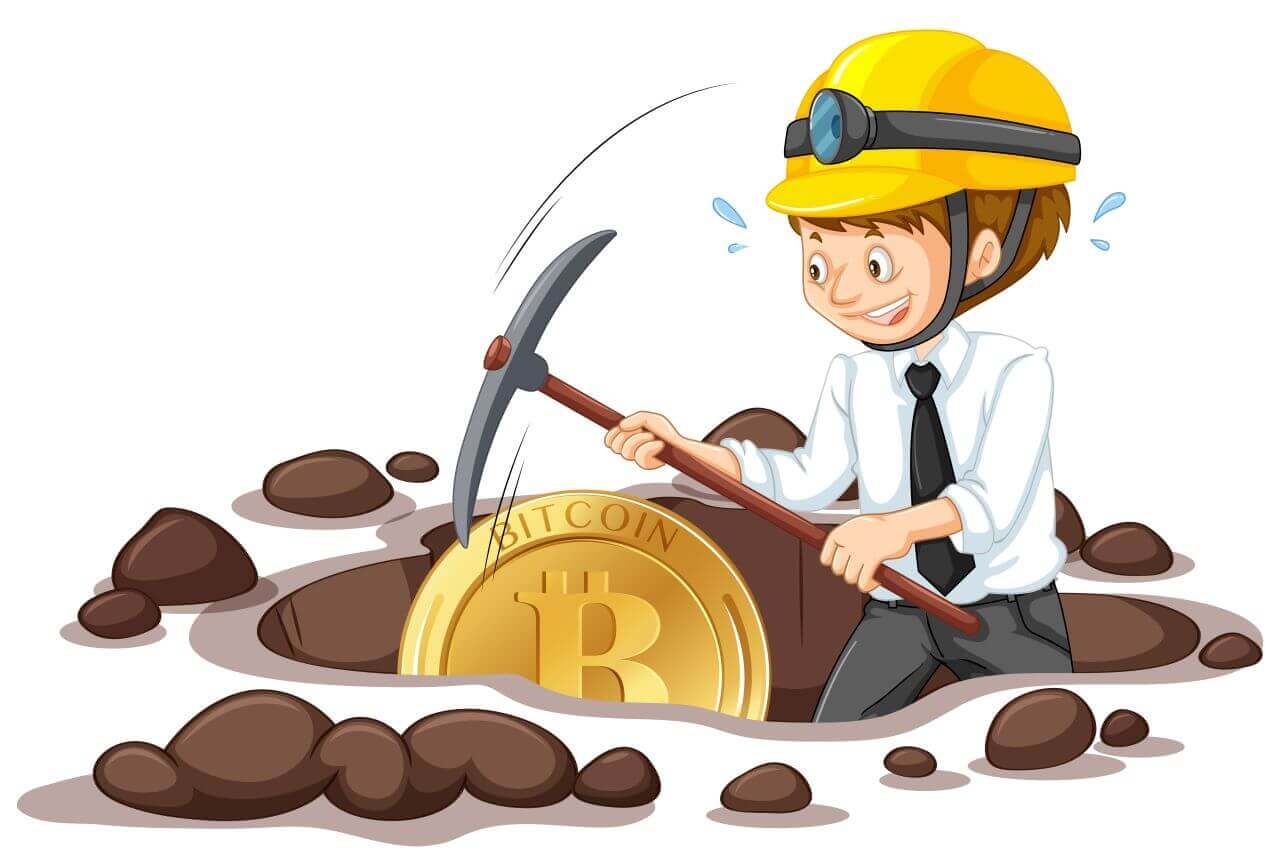What Is Bitcoin Mining?
Bitcoin mining is the process by which new Bitcoins are created. The process requires sophisticated hardware to solve a complex mathematical problem. As soon as the first computer solves the problem, it receives the next block of Bitcoins, and the process starts again. The network also uses it to confirm recent transactions, and it is crucial to the development and maintenance of the blockchain ledger.
Bitcoin mining is tedious, costly, and rarely profitable. Nevertheless, mining is a popular activity for investors interested in cryptocurrency since miners receive a reward for their efforts in the form of crypto tokens.
Miners are rewarded with Bitcoins as an incentive to assist in the primary purpose of mining, which is to monitor and legitimize Bitcoin transactions to ensure their validity. Many users worldwide share these responsibilities, making Bitcoin a decentralized cryptocurrency without reliance on a central authority like a government or central bank to supervise its operation.
How does Bitcoin Mining Work?
Blockchain is the technology that drives Bitcoin and many other cryptocurrencies and is a decentralized public ledger that records all transactions across a network. A block consists of a group of approved transactions joined together to form a chain. This process is known as Bitcoin mining.
Bitcoin miners must solve highly complex mathematical problems that require expensive computers and vast amounts of electricity to add a block to the blockchain. An application-specific integrated circuit, or ASIC, is needed, costing upwards of USD10,000. The use of ASICs consumes a large amount of electricity, which has been criticized by environmental groups and limits miners’ profitability.
The miner who successfully adds a block to the blockchain will receive 6.25 Bitcoins as a reward. Every four years, the reward amount is cut in half. As of April 2022, Bitcoin was trading at approximately USD43,000, making 6.25 Bitcoins worth almost USD270,000.
Due to the high volatility of Bitcoin prices, it has been difficult or impossible for miners to predict precisely how much their payments will be worth when they are received.
Is Bitcoin Mining Profitable?
In general, it depends. Despite being successful, Bitcoin miners may not be profitable due to high upfront costs for equipment and the ongoing cost of electricity. Based on the Congressional Research Service report, one ASIC can use the same amount of electricity as half a million PlayStation 3 devices.
It is also challenging to know exactly how much you are earning due to Bitcoin’s volatility. Joining a mining pool is one way to share some of the high mining costs. In a mining pool, miners can share resources and gain more capabilities, but shared resources mean shared rewards, reducing the potential payout.
How Do You Start Bitcoin Mining?
Here are the basics you will need to start mining Bitcoins:
✅ Wallet: Here, you will store any Bitcoin you earn from your mining activities. You can hold, transfer, and accept Bitcoins using a wallet, an encrypted online account. Coinbase, Trezor, and Exodus are among the companies that offer cryptocurrency wallets.
✅ Mining software: There is a wide array of mining software providers, some of which are free to download and can be run on Windows and Mac computers. You will be able to mine Bitcoin once the software has been connected to the required hardware.
✅ Computer equipment: This is the most costly aspect of Bitcoin mining. To mine Bitcoin successfully, you will need a powerful computer that consumes enormous electricity. Hardware costs are often in the range of USD10,000 or more.
Risks of Bitcoin Mining
✅ Price volatility: Bitcoin’s price has fluctuated considerably since its introduction in 2009. Over the past year, Bitcoin has traded at prices of less than $30,000 and nearly $69,000. Due to this type of volatility, miners cannot predict whether their reward will outweigh their high mining costs.
✅ Regulation: Few governments have adopted cryptocurrencies like Bitcoin, and many view them with skepticism due to their independence from government regulation. Governments may restrict the mining of Bitcoins or other cryptocurrencies entirely, as China did in 2021, citing increased financial risks and speculative activity.
The Bottom Line
In addition to validating and confirming new transactions to the blockchain, Bitcoin mining serves an essential function in preventing double-spending by bad actors. It is also how new Bitcoins are added to the system. Although using a complex puzzle involves employing proof of work (PoW), which is energy-intensive, it maintains this decentralized system’s stability, security, and trustworthiness.

Comments
Post a Comment